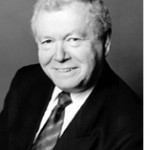By Rabbi Dow Marmur

JERUSALEM — Reform/Liberal/Progressive (henceforth Progressive) Judaism often reaches Jews that other movements don’t get to. This may not apply to the United States and a handful of other comparatively large Diaspora communities, but it’s definitely true of countries where there’re a few Jews and where the traditional congregations are too insecure to accept others than those who are like them.
Many of those others include women and men who consider themselves to be Jewish or would like to embrace Judaism, as well as the marginalized, e.g. because they inhabit the world of LGBT. Ostensibly established communities usually won’t admit them. And when they sometimes do, they regard them very much as second class. In Progressive congregations all members are equal. To belong helps them to behave as Jews and to believe in the God of Israel.
At a time when the Jewish population in the Diaspora, including the United States, is getting smaller, Progressive congregations are helping to stem the tide of defection by welcoming those who consider themselves on the periphery or who weren’t born as Jews yet want to live as Jews.
In Europe, for example, Jews living in the capitals and a few large cities in France and Britain may have a choice as to where to belong. In all other places those on the margin feel isolated, even shunned. Progressive Judaism has changed all that. Thus there’re today Progressive congregations and groups in 17 European countries. There’re also groups in other parts of the world, including the Far East.
Virtually all of these congregations belong to the World Union for Progressive Judaism, which has just concluded its convention in Jerusalem. Of the reported 450 delegates a disproportionate number are said to have come from these small communities.
Members of the more than 40 Progressive congregations and groups in Israel received the visitors with enthusiasm and warmth. Though they live in the Jewish state, Israelis who identify as Progressive Jews are often on the margin. But they also know that Israel brings all Progressive Jews closer to Judaism – despite the harassment by the Orthodox establishment and its secular sympathizers in the Jewish state.
Much of what happens in the Progressive movement around the world is – in addition to inspiration from Israel – depends on resources in the United States, where the Union for Reform Judaism is the largest denomination in American Jewry. Yet most of the American Reform leaders seem to show little interest in what happens to like-minded Jews outside America and Israel. I get the eerie feeling that some are asking versions of Stalin’s famous question about the Vatican, “How many divisions does the Pope have?” Quantity seems to be paramount; the small communities in Belorus, Luxemburg, Italy, Denmark or Singapore don’t have much to show for it.
Had it not been for two Rabbinic Schools – the Leo Baeck College in London and the Geiger Kolleg in Berlin – these small communities would be starved of religious leadership. Thanks to them Jewish life is growing and deepening despite the small numbers; they’re helping to save Judaism.
I’ve been involved in different capacities with the World Union for more than half-a-century and am very happy now to look in from the outside. I know that there’s much more to Judaism than counting bodies. The 2017 convention provided ample evidence for it.
*
Rabbi Marmur is spiritual leader emeritus of Holy Blossom Temple in Toronto, Canada. Now residing in Israel, he may be contacted via dow.marmur@sdjewishworld.com